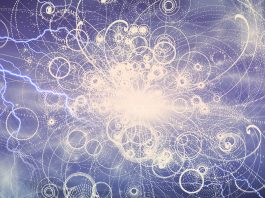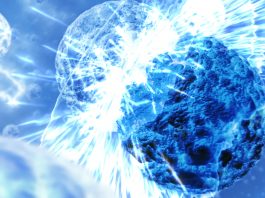A new study shows that leptoquarks, a class of new unknown particles, could affect the transformation of the Higgs boson into muons.
Researchers have conducted a novel study indicating that a class of new unknown particles– known as leptoquarks – could account for the muon’s magnetism as well as affecting the Higgs boson’s transformation into muons.
The term ‘muon anomaly’ is ubiquitous in particle physics; this is a longstanding tension with the Standard Model (SM) of particle physics, seen in the magnetism of a heavier cousin of the electron called a muon, that has recently been reinforced by measurements made at Fermilab in the US.
In a paper that is set to be published in Physical Review Letters, researchers have demonstrated that a class of new unknown particles that could account for the muon anomaly, known as leptoquarks, also affects the transformation, or “decay”, of the Higgs boson into muons.
Leptoquarks are hypothetical particles that connect quarks and leptons, the two types of particles that make up matter at the most fundamental level. They are a prevalent explanation for the muon anomaly and other anomalies seen in certain decays of particles called B mesons.
In a new study, Andreas Crivellin of CERN and his colleagues investigated how two kinds of leptoquarks that could explain the muon anomaly would affect the rare decay of the Higgs boson into muons, of which the ATLAS and CMS experiments recently obtained the first indications.
They discovered that one of the two kinds of leptoquarks increases the rate at which this Higgs decay takes place, while the other one decreases it.
“The current measurements of the Higgs decay to muons are not sufficient to see this increase or decrease, and the muon anomaly has yet to be confirmed,” explained Crivellin. “But if future measurements, at the LHC or future colliders, display such a change, and the muon anomaly is confirmed, it will be possible to pick out which of the two kinds of leptoquarks would be more likely to explain the muon anomaly.”









